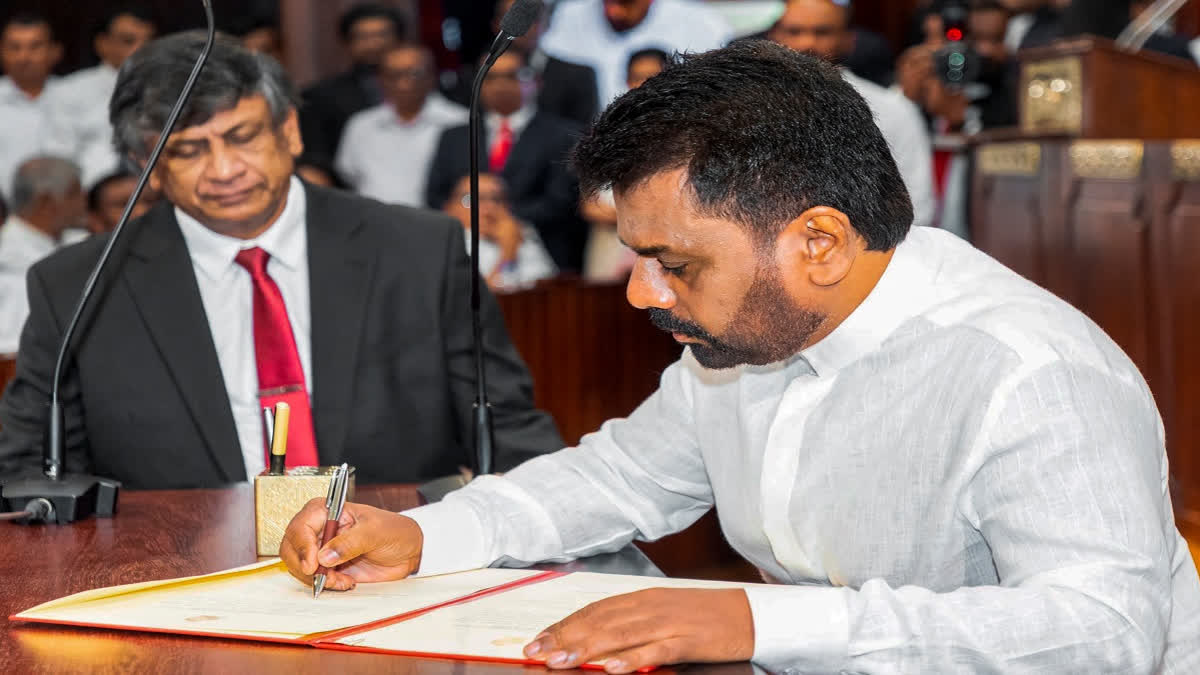New Delhi: Anura Kumara Dissanayake's victory as Sri Lanka's President marks a significant shift in the island nation's political landscape. As the nation's new Marxist-leaning leader, Dissanayake's stance on the economy, IMF loans, and India-Sri Lanka ties are being closely watched.
Economic Challenges
Sri Lanka's economy faces significant challenges, including high inflation, foreign exchange shortages, and substantial public debt. The previous Rajapaksa regime left the economy in shambles, with poverty rising to 28% ¹. However, under President Ranil Wickremasinghe's leadership, the economy saw a swift recovery, with the currency stabilizing, foreign reserves bolstering, and inflation dropping to single digits.
Dissanayake's Economic Agenda
Dissanayake has pledged to renegotiate the $2.9 billion IMF loan to relieve the common people. His party, Janatha Vimukthi Peramuna (JVP), opposes the neoliberal economic model adopted in 1977, which has resulted in crony capitalism. Dissanayake aims to make the economy more inclusive, allowing more people to enter business.
India-Sri Lanka Ties
As a neighbouring country with a complex history, India has a vested interest in Sri Lanka's stability. India seeks a peaceful and stable Sri Lanka, with harmonious relations between the Tamil and Sinhala communities. Dissanayake has expressed a desire to engage with India and maintain cordial relations, despite his party's anti-India and pro-China stance.
Expert Insights
Professor Harsh V Pant notes that Dissanayake's policy response is unknown, and India will be watching his policies carefully. Professor Ajay Darshan Behera points out that managing the economy will be Dissanayake's main challenge, and Sri Lanka needs to diversify its exports and attract foreign investments to boost its foreign exchange.
Key Sectors
Agriculture, textiles, and tourism are crucial sectors of Sri Lanka's economy. The government has implemented reforms, including seeking IMF assistance, to stabilize the economy. However, structural issues, such as reliance on imports and vulnerability to global market fluctuations, remain pressing concerns.
As Dissanayake navigates the complex economic landscape, his ability to balance ties with India, China, and other powers will be crucial. The international community is keen to see a stable Sri Lanka, and Dissanayake's success will depend on his ability to fulfil the people's expectations and manage the economy effectively.



